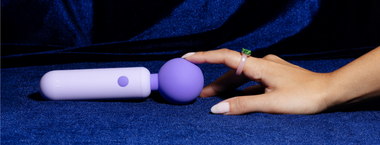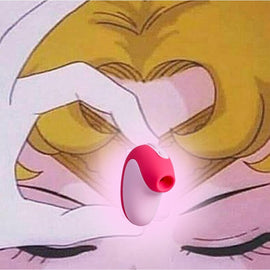A Hot and Quick Guide to BV, UTIs, and Yeast Infections

It’s hot, it’s humid, and we’re suffering. Not only are these high temps miserable to be in, they can also exaberate some of the common afflictions people with vaginas can get: namely bacterial vaginosis (BV), urinary tract infections (UTIs) and yeast infections. Getting these are incredibly common and aren’t an indictment on your “cleanliness” — they’re all merely bacterial or fungal imbalances that can be easily thrown off by a change in the weather or in your body wash. We’ve broken down the differences between them all, how to know which one you have, and how to lower the risk of getting them in the future.
BACTERIAL VAGINOSIS (BV)
Bacterial vaginosis, or BV, is a bacterial imbalance, or overgrowth, of the natural bacteria in the vagina.
Telltale symptoms:
- Strong, fishy odor
- Thin discharge, sometimes grey, green or white
Other symptoms:
- Cramping, pain
- Itching
You’re more likely to get BV if:
- You’re sexually active
- You douche
- You use scented lotions/soaps/body washes
Treatment
BV is treated by prescription antibiotics, either a pill you take orally, or a gel you insert vaginally, for up to 5-7 days. In many cases, it can clear up on its own, and discomfort can be managed with ibuprofen.
URINARY TRACT INFECTIONS (UTIs)
A urinary tract infection, or UTI, is a bacterial infection that occurs in any part of the urinary system, but most commonly occurs in the urethra or bladder. More serious infections can affect the kidney. UTIs can occur in both people assigned female at birth and assigned male at birth, but are more common in people with vulvas.
Telltale symptoms:
- A burning sensation when you pee
- Increased urge to urinate
Other symptoms:
- Urine that is cloudy, bloody, or strong-smelling
- Pelvic pain
You’re more likely to get a UTI if:
- You are sexually active
- You use scented lotions/soaps/body washes
- You are dehydrated
- You were assigned female at birth
Treatment
A UTI is treated by a course of antibiotics prescribed by a doctor. If you can’t get an in-person appointment, Planned Parenthood provides telehealth and can send you UTI antibiotics via their app. UTIs can clear up on their own in about 3-5 days. It is also advised to drink plenty of fluids while you have a UTI.
YEAST INFECTION
A yeast infection is a fungal imbalance in the vagina, typically caused by candida, a type of yeast in the body. When this yeast rapidly grows out of balance with your body, it causes the irritation known as a yeast infection.
Telltale symptoms:
- Thick, chunky grey or white discharge, like cottage cheese
- Pain or itching around vulva or vaginal opening
Other symptoms:
- Red and swollen vagina
- Watery discharge
- A burning sensation during sex or while peeing
You’re more likely to get a yeast infection if:
- You are sexually active
- You use scented lotions/soaps/body washes
- You sit in wet clothing for an extended period of time
Treatment
A yeast infection can be treated with anti fungal medications prescribed by a doctor or with over-the-counter creams and suppositories.
We've created a chart for you to show the differences between each infection, so you can quickly assess which one you have when the time comes!

PLEASE NOTE: if you experience any of the symptoms above for over a week, they worsen, or you begin to run a fever, see a doctor.
PREVENTION
These ailments aren’t 100 percent preventable, but there are steps you can take lower your chances of getting them:
- Avoid using scented washes/lotion on or near your vulva
- Don’t douche
- Wear breathable, cotton underwear
- Avoid wearing pants or shorts that are too tight for too long
- Make sure you’re hydrated
- Pee after sex
- Use body-safe toys and lubricants
- Use condoms and dental dams
Sometimes, it's a change in our personal care routine that can throw us in a (literal) funk — it can really only take a new body wash or a scented lotion — which can make trying new body care products can be a little nerve wracking. We designed Lazies with soothing ingredients like centella, collagen and niacinamide to tackle ingrown hairs, razor bumps and dryness on your bikini line, underarms, or anywhere else you need it.



Latest Articles

A Hot and Quick Guide to BV, UTIs, and Yeast Infections

9 Acts of Queer Resistance to Know in Addition to the Stonewall Riots








